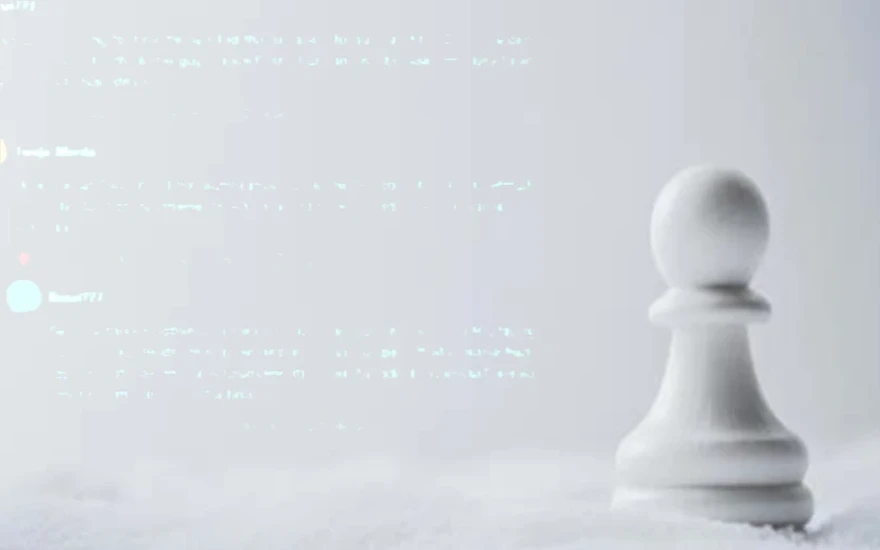In 2025, A.I. seems to pop up on TV nearly as often as it does in real life. On the hospital-mockumentary sitcom “St. Denis Medical,” a curmudgeonly physician resents the unerring faith that a patient has in his A.I. diagnostic tool. In the high-school-set comedy “English Teacher,” an idealistic educator campaigns for “smart” trash cans, only to discover that the new camera-equipped bins are part of an elaborate data-harvesting scheme. And in the Hollywood satire “The Studio,” a production company’s revelation that one of its projects will rely on A.I. animation causes major backlash.
Some shows have taken a more sympathetic approach. The Apple TV dramedy “Murderbot,” based on Martha Wells’s book series, tries to see things from the point of view of its titular hero. The story takes place on a far-off planet, where the self-named Murderbot (Alexander Skarsgård) is tasked with insuring the safety of a group of scientists studying unpredictable local fauna. While the researchers bicker with one another about how much dignity to accord the android—is he a machine or a slave?—Murderbot obeys their directives with the sullenness of a put-upon teen-ager and snarks to himself about their tiresome “exchanges of words and fluids.” (He’s not wrong about their tediousness, but he’s just as dull as the objects of his mockery.) The twist is that Murderbot isn’t particularly concerned with helping or destroying the people around him; he’d simply prefer to fritter away his off-duty hours bingeing cheesy space operas. It is his Bartleby-esque recalcitrance, in fact, that makes him feel most human.
Unexpectedly, the 2025 series that channels contemporary A.I. anxieties most effectively is a sci-fi drama set in the twenty-second century, in a universe where artificially intelligent flunkeys have already become obsolete. The “Alien” film franchise has long been noted for its populist, cyberpunk-esque perspective; in the original movie, the primary characters are interstellar merchant mariners deemed expendable by their employer. The new FX prequel series “Alien: Earth” renders the evils of corporate exploitation yet more explicit: its chief antagonist, a haughty man-child who calls himself Boy Kavalier (Samuel Blenkin), is a trillionaire with no compunctions about deceiving the vulnerable or endangering the planet to advance his own agenda.
The world of “Alien: Earth” has no practical government; after the collapse of democracy, five megacorporations took over. Technological marvels do little to ameliorate the hardscrabble existence of most workers; sixty-five-year labor contracts are the norm. Extraterrestrials aside, the show’s portrayal of internecine battles between callous, self-involved plutocrats at the expense of pretty much everyone else doesn’t feel too far removed from our own situation. In May, the C.E.O. of a prominent real-life A.I. firm predicted the elimination of half of all entry-level white-collar jobs by 2030—even as talent wars within the field enabled top researchers to command nine-figure pay packages. The contrast has prompted doomer jokes about an impending “permanent underclass.” Meanwhile, various large language models have absorbed vast swaths of data, sometimes through illegal means, and A.I.-generated images and videos have ushered in a terrifying new era in which people have less control than ever over their likenesses and those of their loved ones. This month, the release of the text-to-video app Sora 2 forced the daughters of Robin Williams and Martin Luther King, Jr., to plead with the public to stop sending them deepfakes of their fathers.
The way A.I. is rupturing relationships, institutions, and truth itself has given our current moment the air of science fiction: every day brings new reports of chatbots becoming objects of romantic obsession, pushing users toward psychotic breaks, or encouraging teen-agers to kill themselves. As commentators on both sides of the A.I. divide frequently note, either as a promise or a threat, this is the worst the technology will ever be. Hollywood will have to confront—and compete with—that reality if it’s to help make sense of what’s to come. ♦
.png)



